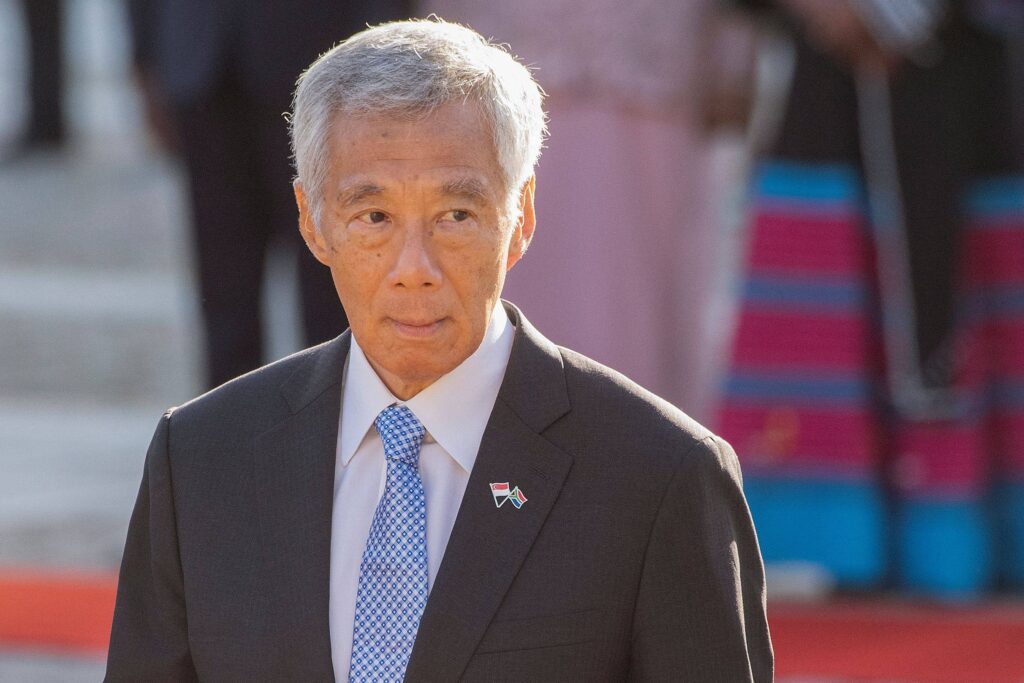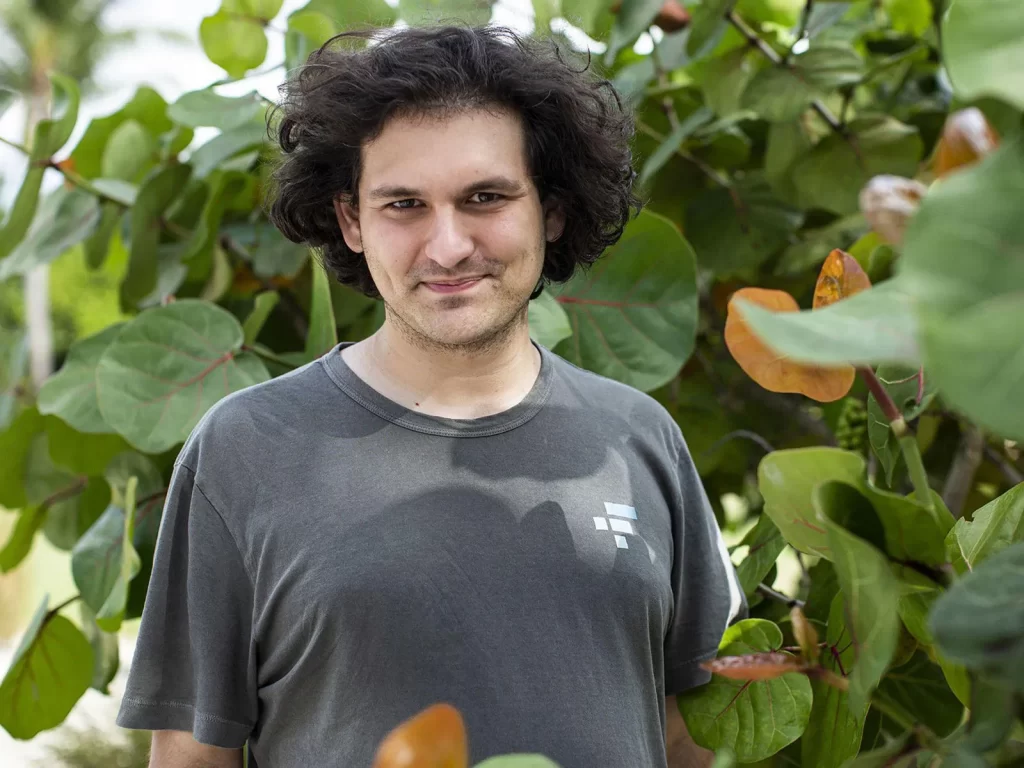In the midst of the mounting excitement surrounding the potential approval of a spot Bitcoin exchange-traded fund (ETF) in January 2024, certain industry analysts have raised concerns, particularly regarding the issue of backing.
Josef Tětek, a Bitcoin analyst at the hardware crypto wallet firm Trezor, voiced his apprehensions in December 2023, suggesting that spot Bitcoin ETFs might steer individuals away from self-custody, possibly leading to the creation of “millions of unbacked Bitcoin.”
He warned of a scenario where these ETFs could result in what is often termed “paper Bitcoin.”
Tětek’s remarks stirred a significant response within the crypto community, with some dismissing his claims as FUD (fear, uncertainty, doubt), while others pondered the means to ensure that ETF issuers truly hold Bitcoin on behalf of their clients.
Some observers even advocated for the publication of “actual on-chain addresses” in addition to reports on the issuers’ BTC holdings.
David Gerard, the author of “Attack of the 50 Foot Blockchain,” countered Tětek’s concerns, asserting that it was “unlikely” for ETF administrators to create unbacked BTC equivalents or misrepresent their assets.
He emphasized the regulatory oversight and credibility of well-established financial entities, dispelling the notion that unbacked ETF shares were a realistic threat.
However, he didn’t delve into whether clients could independently verify BTC holdings by issuers.
Drawing a comparison to gold ETFs, Bloomberg ETF analyst Eric Balchunas contended that spot Bitcoin ETFs would closely resemble them.
READ MORE: US Prosecutors Hint at No Second Trial for Ex-FTX CEO Sam Bankman-Fried
He pointed out that gold ETFs, having been in existence for two decades, diligently disclose the quantity of gold held by the custodian.
Balchunas emphasized the meticulousness of asset managers, stating they neither desired legal trouble nor wanted the negative publicity that would accompany any failure to hold Bitcoin or any shorting of it.
He also noted that companies like BlackRock and Grayscale were exposed to Bitcoin’s volatility.
The key distinction with spot Bitcoin ETFs, as currently conceived, is that investors would receive cash instead of Bitcoin upon redemption.
Balchunas advised individuals seeking direct ownership of Bitcoin to do so through self-custody, which aligns with the original vision of Bitcoin’s anonymous creator, Satoshi Nakamoto.
He underscored that the vast collective assets in mutual funds and ETFs, amounting to approximately $30 trillion, meant that most investors preferred to avoid direct interaction with the underlying assets.
While many industry observers expressed confidence in the integrity of ETF providers in the cash-create model, others remained convinced that there was a fundamental issue.
According to Tětek, the only way to eliminate concerns of “paper Bitcoin” would be if ETF shares were redeemable for actual Bitcoin.
However, given that the proposed ETFs only allowed for cash in and cash out, investors would have to place trust without the ability to independently verify holdings.
On the final day of consideration by the United States Securities and Exchange Commission (SEC) in January 2024, prominent asset management firms BlackRock, Valkyrie, and Van Eck submitted amended S-1 forms.
These revised documents represent the next step in their quest to establish Bitcoin exchange-traded funds (ETFs) and align with the SEC’s preferences.
Van Eck’s updated application emphasizes that “Authorized Participants” (APs), the financial entities permitted to buy or redeem shares with the Trust, will exclusively transact in cash for both share creation and redemption. This approach mirrors the SEC’s preferred method.
In its updated filing, BlackRock identified Jane Street and JPMorgan Securities as its “authorized participants” for the proposed spot Bitcoin ETF.
BlackRock has consistently advocated for a cash-only model.
Furthermore, the asset manager made history by executing the first trade on JPMorgan’s Tokenized Collateral Network service on October 11.
BlackRock originally submitted its application for a spot Bitcoin ETF in June, followed by Valkyrie’s application a week later.
READ MORE: ARK Invest Liquidates $200 Million in GBTC Holdings, Shifts Focus to Bitcoin Futures ETF
Both firms have actively engaged with the SEC throughout December, attending meetings to discuss their proposals.
Commenting on BlackRock’s amendment, Bloomberg ETF analyst Eric Balchunas noted, “Looks [like] we have our first horse at the starting gate,” alluding to the asset manager’s potential for SEC approval.
Balchunas previously anticipated the SEC’s decision on the outstanding spot Bitcoin ETF filings to occur by January 10, 2024.
If approved, trading could commence shortly thereafter.
Valkyrie, in its updated S-1, also designated authorized participants, namely Jane Street Capital and Cantor Fitzgerald. Additionally, StoneX Financial will assume the role of its lead market maker.
It’s worth noting that a slew of financial heavyweights, including BlackRock, Van Eck, Grayscale, Bitwise, WisdomTree, Invesco, Galaxy, Fidelity, ARK Invest, Valkyrie, Franklin, Hashdex, Global X ETFs, and Pando Asset, have all submitted S-1 applications for spot Bitcoin ETFs.
The outcome of these applications will have significant implications for the cryptocurrency market and its integration into traditional financial systems.
Singapore’s Prime Minister, Lee Hsien Loong, has issued a stark warning to his social media followers about the rising threat of deepfake videos leveraging his voice and image to promote fraudulent cryptocurrency schemes.
On December 28, Loong took to his social media platforms, including X (formerly Twitter), LinkedIn, and Facebook, to caution his supporters against falling victim to scammers who employ artificial intelligence (AI) technology to generate deepfakes that falsely attribute promises of “investment returns” and cryptocurrency giveaways to him.
He even shared an example of a deceptive video featuring himself being interviewed, which was manipulated by fraudsters to promote a bogus form of “hands-free crypto trading.”
Loong emphasized the growing danger posed by deepfake technology in spreading misinformation. He stressed the importance of remaining vigilant and educating oneself and loved ones on how to defend against such scams.
Notably, Prime Minister Loong has long been a target for scammers, predating the proliferation of AI-based tools in this arena.
READ MORE: Argentina’s New Government Takes Steps to Legalize Cryptocurrency Holdings
In 2021, he issued a cautionary message to Singaporeans, urging them to exercise caution when dealing with cryptocurrency platforms.
At that time, individuals had created fraudulent profiles on platforms like BitClout, using fake social media accounts to sell tokens, raising concerns about identity theft and fraud.
Furthermore, both Loong and Deputy Prime Minister Lawrence Wong faced inquiries from lawmakers in the wake of the FTX exchange’s collapse in 2022, underscoring the government’s commitment to safeguarding its citizens from cryptocurrency-related risks.
The cryptocurrency landscape has been rife with scams since its inception. Scammers have employed a variety of tactics to dupe users into parting with their fiat currency or digital tokens.
In 2020, high-profile Twitter accounts, including former United States President Barack Obama and President-elect Joe Biden, were compromised by hackers who used them to promote a fraudulent Bitcoin scheme.
These incidents illustrate the ongoing challenge of combating cryptocurrency scams and the importance of public figures like Prime Minister Lee Hsien Loong raising awareness to protect the community from financial fraud in the digital age.
Indonesian authorities have recently taken action against ten Bitcoin mining operations, accusing them of electricity theft amounting to nearly $1 million USD.
The North Sumatra Police Force initiated the crackdown, targeting a multi-site Bitcoin mining operation across various locations in Indonesia.
During the operation, they confiscated 1,134 Bitcoin mining machines, 11 meters of electrical cable, and assorted computer equipment.
The Chief of North Sumatra Police, Irjen Agung Setya Imam Effendi, asserted that the organizers of these mining operations had manipulated electrical circuits to power the extensive number of Bitcoin mining machines.
Effendi demonstrated the tampering, explaining that the electricity was being diverted from the upper part of the PLN box, bypassing the meter, which was improper and illegal.
READ MORE: ARK Invest Liquidates $200 Million in GBTC Holdings, Shifts Focus to Bitcoin Futures ETF
The total loss resulting from these ten cases of electricity theft was estimated to be 14.4 billion Indonesian Rupiahs (IDR), equivalent to approximately $935,666 USD.
This incident follows a high-profile case in China where a government official received a life sentence for facilitating access to electricity for Bitcoin miners.
Yi Xiao, a former vice chairman of the Jiangxi Provincial Political Consultative Conference Party Group, was convicted of abusing power in a Bitcoin mining enterprise.
Xiao had reportedly operated a massive $329 million Bitcoin mining venture under the corporate name Jiumu Group Genesis Technology from 2017 to 2021.
During this period, Xiao, along with other corporate executives, amassed a staggering 160,000 Bitcoin mining machines, which at one point accounted for 10% of the entire electricity consumption of the city of Fuzhou.
His sentence underscores the seriousness with which authorities are addressing illegal Bitcoin mining activities, particularly those involving electricity theft, as these operations can impose significant financial burdens on both governments and utility providers.
On December 29, the contenders in the race for a Bitcoin exchange-traded fund (ETF) spot waited until the eleventh hour to submit their final S-1 form applications.
Throughout the day, these applications trickled into the United States Securities and Exchange Commission (SEC), following earlier submissions by BlackRock, Van Eck, and Valkyrie.
Notable names in the crypto industry, including Invesco Galaxy, Bitwise, WisdomTree, and Fidelity, joined the fray.
In the latest filings, Fidelity, WisdomTree, and Invesco Galaxy revealed their authorized participants. Invesco Galaxy chose Virtu and JPMorgan, while WisdomTree and Fidelity opted for Jane Street Capital.
Interestingly, WisdomTree decided to stick with in-kind share creation and redemption, despite the SEC’s encouragement to switch to cash-based mechanisms.
Furthermore, it seems a price war has ignited among competitors. Invesco Galaxy, for instance, announced a waiver of fees for the first six months and the first $5 billion in assets.
Fidelity, on the other hand, set its fee at 0.39%.
Bitwise, though yet to disclose its authorized participants, mentioned in its S-1 filing that an undisclosed entity expressed interest in purchasing up to $200 million worth of the ETF shares.
READ MORE: Bitcoin Miners Surge: Marathon Digital Tops Trading Charts Ahead of Anticipated ETF Approval
It’s worth noting that several major players in the industry have thrown their hats into the ring.
BlackRock, Van Eck, Grayscale, Bitwise, WisdomTree, Invesco Galaxy, Fidelity, ARK Invest, Valkyrie, Franklin, Hashdex, Global X ETFs, and Pando Asset have all submitted S-1 applications for spot Bitcoin ETFs.
The SEC had set December 29 as the deadline for amendments to spot BTC ETF S-1 filings.
Grayscale made a last-minute submission on December 27 with a new S-3 filing, following the resignation of Barry Silbert from the board of directors.
In this filing, Grayscale announced its intention to convert its Grayscale Bitcoin Trust into a cash-only spot ETF, mirroring similar moves by Van Eck and BlackRock in earlier revisions.
Barry Silbert and his company, the Digital Currency Group, are currently under investigation by the SEC, adding another layer of complexity to the evolving landscape of Bitcoin ETF applications.
The Nigerian Securities Exchange Commission (SEC) has introduced crypto license requirements that are poised to reshape the landscape of the local cryptocurrency exchange market.
Despite the Central Bank of Nigeria (CBN) recently lifting restrictions on Nigerian banks facilitating cryptocurrency transactions, Rume Ophi, a Nigerian crypto analyst, believes that the SEC’s new regulations will have a significant impact.
In an interview with Cointelegraph, Rume pointed out a crucial issue: the minimum paid-up capital requirement of $556,620 (N500 million naira).
This substantial financial burden is a barrier that many local cryptocurrency exchanges may find insurmountable.
Consequently, Rume predicts that these stringent requirements will likely result in a reduced number of operational local exchanges, tilting the balance towards foreign exchanges dominating the Nigerian market.
The Nigerian SEC’s move to reshape the crypto landscape began in May 2022 when it published a comprehensive 54-page document titled “New Rules on Issuance, Offering Platforms, and Custody of Digital Assets.”
READ MORE: JPMorgan CEO Jamie Dimon Under Scrutiny Over Bitcoin ETF
This document aimed to provide guidelines for cryptocurrency service providers in Nigeria and outline how banking and financial institutions in the country could engage with digital assets.
To comply with the SEC’s regulations, cryptocurrency exchanges must obtain a virtual asset service provider (VASP) license, which involves meeting various requirements, including application processing, registration fees, and other associated costs.
Remarkably, a global survey spanning 15 countries revealed that Nigeria, Africa’s largest economy, boasts the highest level of cryptocurrency awareness in the world.
Despite this, Nigeria’s cryptocurrency adoption and usage rate ranked only eighth among 154 countries surveyed in Chainalysis’ 2020 Cryptocurrency Geography Report.
Rume suggests that the ban on financial institutions servicing crypto exchanges played a pivotal role in constraining investment in the country.
However, with the recent lifting of the CBN ban, Rume believes that Nigeria is poised for a positive shift in crypto investment.
This policy change is expected to encourage more foreign crypto investment, potentially revitalizing the Nigerian cryptocurrency industry.
Additionally, it could pave the way for the employment of locals in Web3 and the broader crypto sector, contributing to the growth and development of Nigeria’s digital economy.
Following an astounding 120% monthly surge in December, Solana’s token faced a cooling period in the days after Christmas. Despite this retracement, its market capitalization surpassed that of Binance’s BNB.
Solana’s price dipped below the $100 mark before stabilizing just above $101 in the pre-holiday hours, Investing Insider reported on Sunday.
Currently, Solana is trading at $105, representing a 14% decline from its annual peak of $123 on December 26, as reported by TradingView data.
Unexpectedly, Binance’s native token, BNB, experienced a 9% uptick in its price, reclaiming its position as the fourth-largest cryptocurrency by market capitalization.
Solana’s rally also had a ripple effect on SOL-based meme coins like Bonk (BONK) and Dogwifhat (WIF).
These meme coins witnessed remarkable price actions in the past few weeks, with Bonk posting gains of 650% and Dogwifhat skyrocketing by a staggering 123,000% between November 22 and December 22.
However, both meme coins retraced by over 50% from their all-time highs, coinciding with Solana’s dip just three days after it reached its yearly high on December 26.
READ MORE: Chinese Authorities Bust $2.2 Billion Crypto Underground Banking Operation
In tandem with Solana’s price surge, there was a surge in trading activity on the Solana network.
This surge briefly caused trading volumes on SOL-based decentralized exchanges (DEXs) to surpass those on Ethereum, marking a significant milestone.
However, Solana DEX volume has since decreased, currently standing at $1.1 billion over the last 24 hours, roughly half of Ethereum’s $2 billion, according to DefiLlama data.
In addition to Solana’s performance, Ethereum has also gained traction, with a 5% weekly increase.
Many traders and analysts are speculating that Ethereum could soon outperform its competitors in the crypto market.
In conclusion, despite a cooling period in Solana’s token price after its impressive December rally, the cryptocurrency market remains dynamic and subject to unexpected fluctuations.
The competition among top cryptocurrencies, such as BNB, Ethereum, and Solana, continues to shape the landscape of the digital asset market.
Ethereum founder Vitalik Buterin recently unveiled the Ethereum roadmap for 2024, revealing that the upcoming year would bring only minor alterations compared to the previous one.
In a series of informative posts shared on X (formerly Twitter), Buterin outlined the primary focal points for Ethereum in 2024, with the roadmap centered around six key components.
Furthermore, Buterin provided in-depth insights into these six elements—namely, the merge, the surge, the scourge, the verge, the purge, and the splurge—accompanied by a detailed chart featuring annotations and diagrams.
Despite the passage of time, Buterin pointed out that there were only minimal adjustments compared to the 2023 roadmap, emphasizing Ethereum’s evolving and crystallizing technical direction: “As Ethereum’s technical path forward continues to solidify, there are relatively few changes.”
Of paramount importance in this roadmap is “The Merge,” which seeks to maintain a straightforward and robust proof-of-stake (PoS) consensus.
The Merge event took place in September 2022, marking the integration of the Ethereum mainnet with the proof-of-stake blockchain known as the Beacon Chain.
READ MORE: Chinese Authorities Escalate Crackdown on Cryptocurrency
This momentous transition led to a substantial reduction in Ethereum’s overall energy consumption as it shifted away from the energy-intensive proof-of-work (PoW) consensus mechanism.
In a press release, Buterin also highlighted the progress made in Ethereum’s single slot finality (SSF), an integral aspect of the post-Merge PoS improvement.
SSF plays a pivotal role in ensuring that alterations to a blockchain block become irreversible without the burning of at least 33% of the total staked ETH.
He stated, “The role of single slot finality (SSF) in post-Merge PoS improvement is solidifying.
It’s becoming clear that SSF is the easiest path to resolving a lot of the Ethereum PoS design’s current weaknesses.”
In addition to the technical aspects, Buterin’s recent endeavors have included a desire to revive the original ideals of the “cypherpunk” revolution within the blockchain space.
The term “cypherpunk” refers to individuals who employ encryption to safeguard their privacy when accessing computer networks, particularly in the face of government surveillance.
Buterin elucidated in a blog post that Ethereum’s initial vision revolved around being a “public decentralized shared hard drive,” capable of harnessing peer-to-peer messaging and decentralized file storage.
However, this vision waned in 2017 with the shift towards financialization on the Ethereum platform.
Nevertheless, Buterin acknowledged that concepts like rollups, zero-knowledge proofs, account abstraction, and second-generation privacy solutions have gained prominence and have the potential to align with the values associated with cypherpunk principles.
JPMorgan CEO Jamie Dimon has found himself under scrutiny from the crypto community following his appointment as an authorized participant (AP) by BlackRock, a move revealed in BlackRock’s updated Form S-1 filing released on December 29.
In the world of exchange-traded funds (ETFs), an authorized participant is an organization granted the privilege to create and redeem shares of the ETF.
BlackRock, in its filing, formally designated Jane Street and JPMorgan Securities as “authorized participants” in its proposed spot Bitcoin ETF application.
Interestingly, this development comes despite Dimon’s public stance against Bitcoin.
Dimon had made his stance clear during a December 6 hearing of the United States Senate Banking Committee.
At that time, he asserted that if he held governmental authority, he would make efforts to shut down cryptocurrencies.
Dimon argued that Bitcoin and other cryptocurrencies primarily serve as tools to facilitate criminal activities. This statement drew sharp criticism from the crypto community.
Critics were quick to point out the apparent hypocrisy of JPMorgan’s involvement as an authorized participant in BlackRock’s Bitcoin ETF.
Silver Zimmermann, a crypto enthusiast, sarcastically suggested, “Perhaps money laundering, tax evasion, criminal participation, and drug trafficking are their business as well.”
Others, like user Sunny Po, questioned JPMorgan’s contradictory positions, asking, “How can JP Morgan do all that after telling Congress and Elizabeth Warren that this is what it’s used for?”
READ MORE: Argentina’s New Government Takes Steps to Legalize Cryptocurrency Holdings
Notably, John Deaton, a pro-XRP lawyer, expressed skepticism regarding Senator Elizabeth Warren’s stance on Bitcoin and raised concerns about JPMorgan’s willingness to associate with Bitcoin despite its negative characterization as a tool for criminals.
Deaton questioned whether this was an attempt to mislead the public or engage in gaslighting.
Despite Dimon’s publicly stated opposition to the digital asset sector, JPMorgan made surprising moves in the crypto space.
The bank recently introduced JPM Coin, its own cryptocurrency token, operating on a private version of the Ethereum blockchain, catering to its institutional clients.
Furthermore, JPMorgan launched a blockchain-based tokenization platform in October, with BlackRock counted among its clients.
The bank also participated in a $65 million funding round for Ethereum infrastructure firm Consensys in April 2021.
In summary, JPMorgan’s involvement as an authorized participant in BlackRock’s Bitcoin ETF has ignited controversy within the crypto community, given Jamie Dimon’s previous negative statements about cryptocurrency.
This development has raised questions about the bank’s stance on Bitcoin and its motivations for engaging in the crypto space.
It appears that former CEO of the now-defunct cryptocurrency exchange FTX, Sam Bankman-Fried, may not face a second trial, according to United States prosecutors.
A recent Reuters report, dated December 29, suggests that many stakeholders are keen to see a swift resolution to the ongoing legal proceedings.
In a court filing, prosecutors emphasized the significant public interest surrounding the case, given the eager anticipation of victims seeking details about compensation for their FTX accounts, which collapsed in November 2022.
This pressing public interest, they argued, should weigh heavily in the decision-making process.
Moreover, the prosecutors noted that there is a dearth of new evidence that would warrant a second trial, as the bulk of the evidence had already been presented during the initial trial.
On November 3, a jury in the criminal trial found Bankman-Fried guilty on all seven fraud charges after just four hours of deliberation.
READ MORE: Bitcoin Poised for Imminent Bullish Rally, Signals Suggest
The charges against him included two counts of wire fraud, two counts of wire fraud conspiracy, one count of securities fraud, one count of commodities fraud conspiracy, and one count of money laundering conspiracy.
In a parallel development, Bankman-Fried’s request for a postponement of his sentencing hearing by four to six weeks was denied.
Judge Lewis Kaplan declined to make any changes to the established schedule, pointing out that the defense had not initially objected to the sentencing date when it was initially set.
Additionally, it was highlighted that Bankman-Fried had already received one extension for filing sentencing submissions.
As it stands, Bankman-Fried’s sentencing date remains set for March 28, 2024.
The anticipation surrounding the resolution of this high-profile case continues to captivate the cryptocurrency community and stakeholders eager for clarity and closure following the FTX exchange’s collapse.












